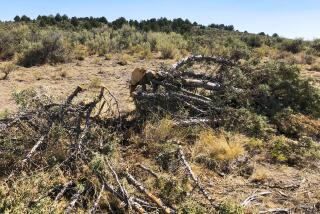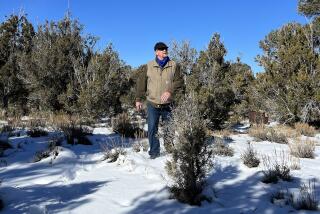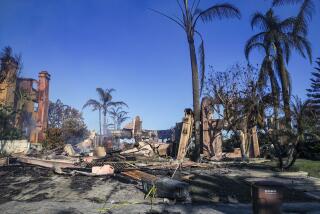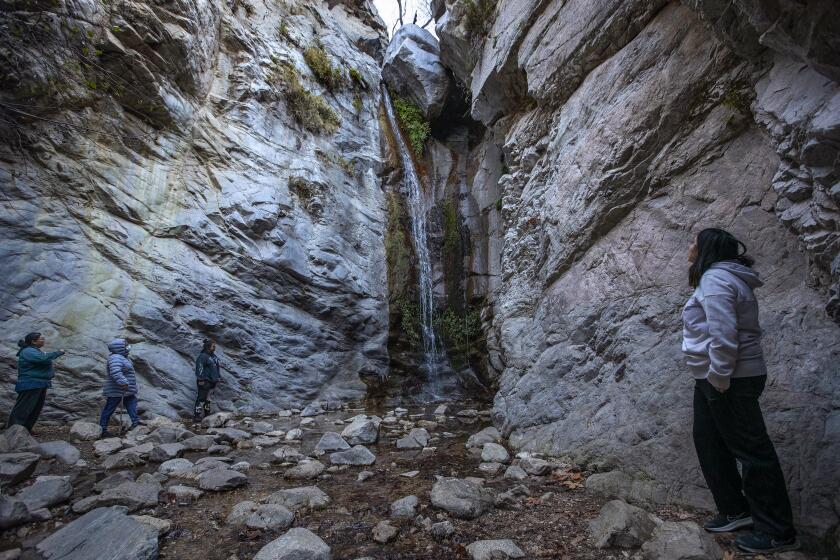Beware the clear-cutters
Even before the embers from the Rim fire had stopped smoldering, the House of Representatives was using the catastrophic forest fire as an excuse to pass a harmful logging bill.
HR 1526, the so-called Restoring Healthy Forests for Healthy Communities Act written by Rep. Doc Hastings (R-Wash.), would mandate that logging more than double in national forests and would require foresters to show that they had met certain timber quotas without regard for whether the forests involved were habitats for threatened species or whether they were in supposedly protected roadless areas.
One of the reasons given for the bill is that taking more lumber out of forests would reduce the intensity of wildfires. But the ferocity of recent infernos such as the Rim fire that swept through the dense Stanislaus National Forest and parts of Yosemite National Park is largely the result of a century of strict fire suppression in which smaller, natural fires were extinguished before they were able to reduce vegetation and thus make larger fires less likely.
There are smart ways to allow increased logging on federal lands so that it not only benefits the timber industry but also reduces the risk of conflagrations. Large swaths of trees in the Western United States are being killed by insect pests, creating a plantation of dried-out fire fuel. That wood has commercial value, though, if it can be cut soon after dying. Current rules require timber companies to wait too long.
In addition, thinning live trees can reduce forest overgrowth and slow the spread of fires. That requires leaving the older, bigger trees, which are more resistant to fire, and taking out the younger, smaller ones that are less sought after by logging operations. Heavy thinning adjacent to towns would provide a buffer that could help protect lives and homes.
But the Restoring Healthy Forests legislation includes none of these. Nor does it recognize that logging practices have typically increased the risk of disastrous fires, because loggers have left treetops and other unmarketable parts on the ground. This dead “slash,” as it’s called, dries out and acts as tinder for future fires. The timber industry must be required to clean up after itself. And part of the proceeds should go to upgrade the U.S. Forest Service’s firefighting equipment and to fund carefully planned and controlled burns.
In some areas of the country, environmentalists and the timber industry have formed talking groups to hammer out agreements that benefit both loggers and the forest. This bill would effectively kill off those efforts and replace them with a one-damaging-size-fits-all approach to forest management.
More to Read
A cure for the common opinion
Get thought-provoking perspectives with our weekly newsletter.
You may occasionally receive promotional content from the Los Angeles Times.






